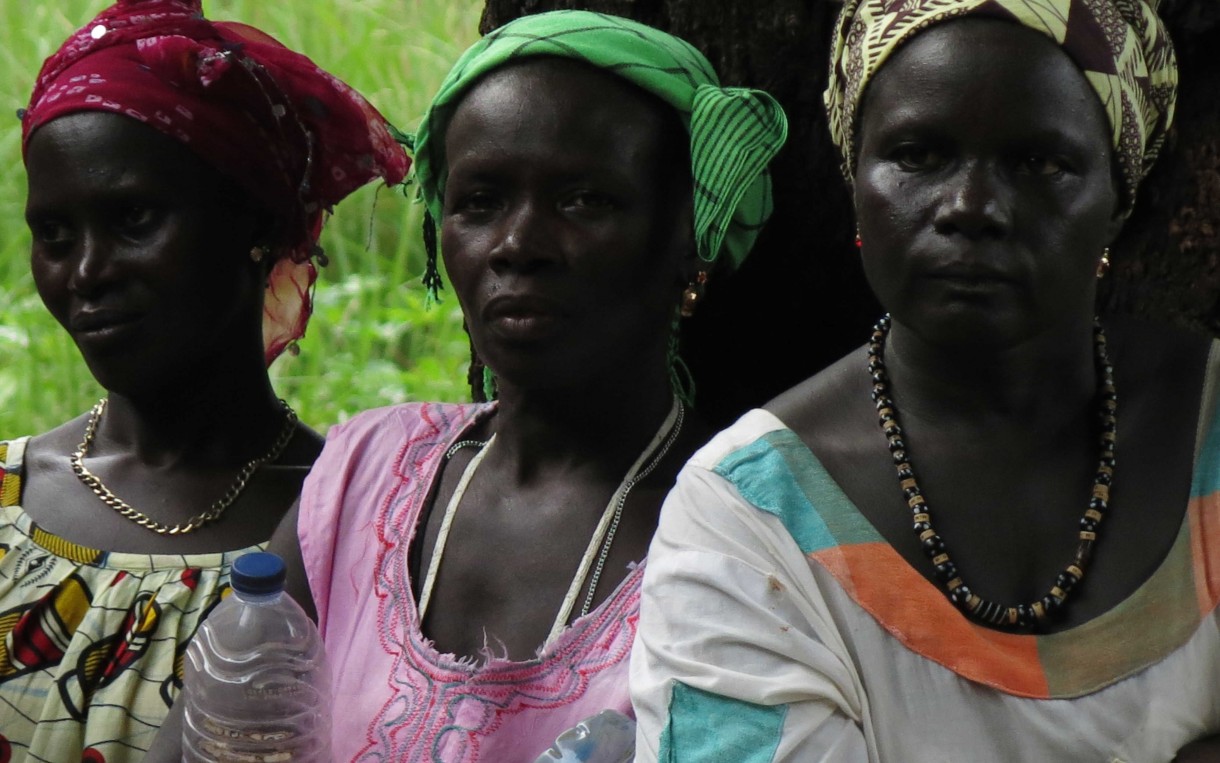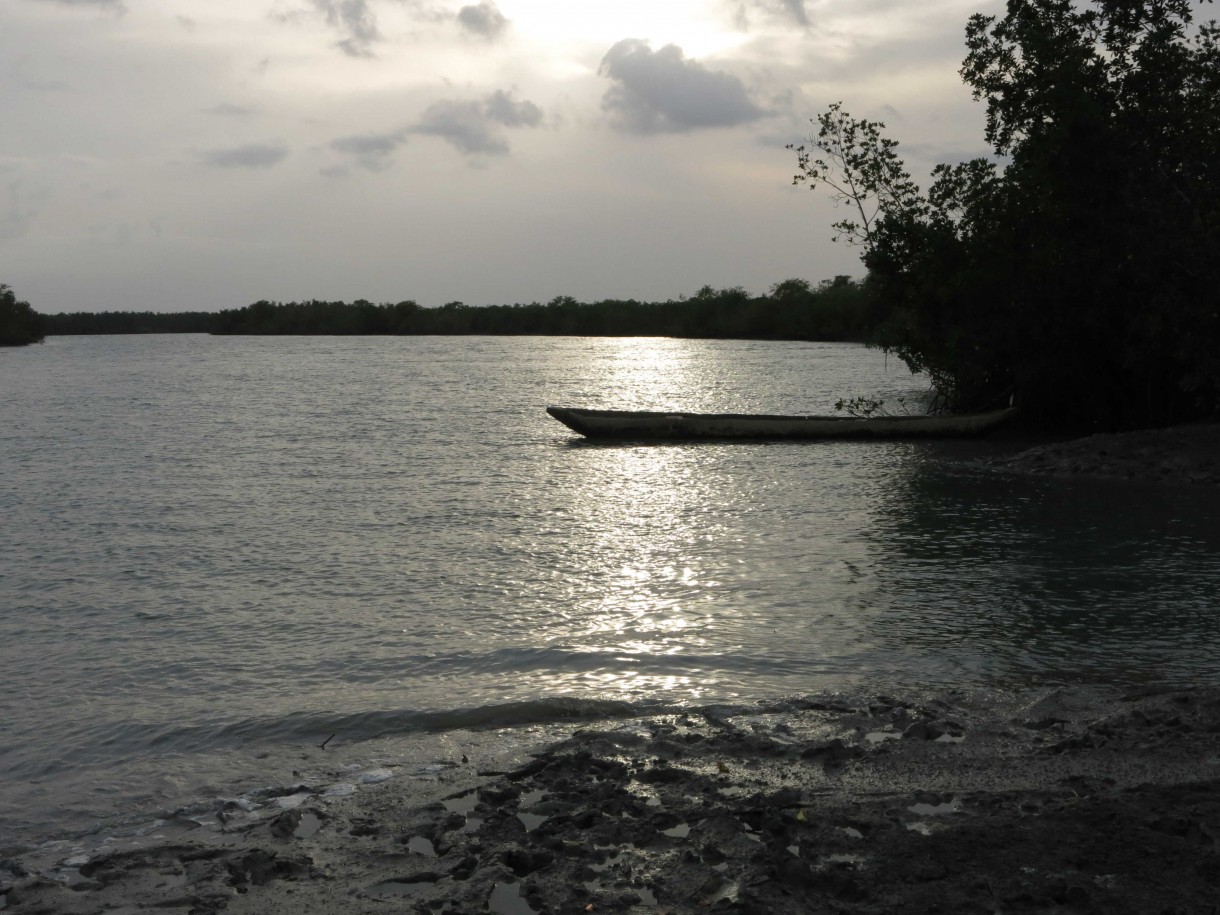In Guinea-Bissau, bracing for Ebola to cross the border
 Women at a hygiene kit distribution. Living in the shadow of Ebola, women in the border communities are committed to protecting the health of their families. Photo: Elizabeth Stevens/Oxfam
Women at a hygiene kit distribution. Living in the shadow of Ebola, women in the border communities are committed to protecting the health of their families. Photo: Elizabeth Stevens/Oxfam
Prevention efforts are easing fears, but the country is still dangerously unprepared for the arrival of this deadly disease.
Oxfam is helping communities in the West African nation of Guinea-Bissau learn how to protect themselves from Ebola. The country shares a border with Guinea, where more than 1,200 people have died of the disease. Oxfam communications officers Elizabeth Stevens, author of the blog below, and Hans Masro visited border villages recently to see critical preparedness work in action.
How do you fight Ebola in the dark?
As our truck crept past villages in the tropical forests of Guinea-Bissau, I had to wonder. Here, when the sun goes down and the fires go out, the thatched huts on the roadside are as dark as the night.
And how do you rush someone to the hospital over roads so rough that five miles an hour can feel dangerously fast?
There is no Ebola in this country, but Guinea is next door, and the families that live near the border are braced for the worst.
Not that they are just waiting around. Local people—trained and supported by the National Association for Local Development, an Oxfam partner—have launched a tremendous effort to protect their communities. They are installing latrines and hand-washing stations, staging Ebola-themed skits, distributing soap, and setting hygiene messages to beautiful music. They are posting signs and going door to door explaining how to navigate the hazards, with rules like wash hands with soap, avoid the meat of wild animals, and don’t touch people who are sick with the disease.
The value of that knowledge is immeasurable. “Now we are not afraid,” a woman named Murida Sa told me. “We are ready to face Ebola.”

But the medical system is lagging far behind.
When you think about Ebola treatment you might picture doctors in hazmat suits and patients on IVs. But try to imagine this: a health center with no doctors, suits, saline, or IVs. No clean running water or latex gloves. No Internet, and barely any access to a phone network. And no electricity–which means no light at night except for the little beam from your cell phone until it dies.
This is what rural medical care looks like in the border region, and it fuels the tireless campaign here to prevent Ebola from gaining a toehold.
One late afternoon in the village of Catesse, our team gathered on the bank of a tidal river, where rough-hewn dugout canoes lined the shore. Boats like these may one day carry Ebola into Guinea-Bissau, explained the village chief, because fishermen from countries like Sierra Leone and Guinea slip through the border here to sell their catch.
I stepped away from the group for a while to take a rest and let the breeze and a birdcall and the smell of the water draw my attention to our beautiful surroundings—a quiet place in the path of a terrible storm.
Help us save lives and stop the spread of this deadly disease. Donate now >